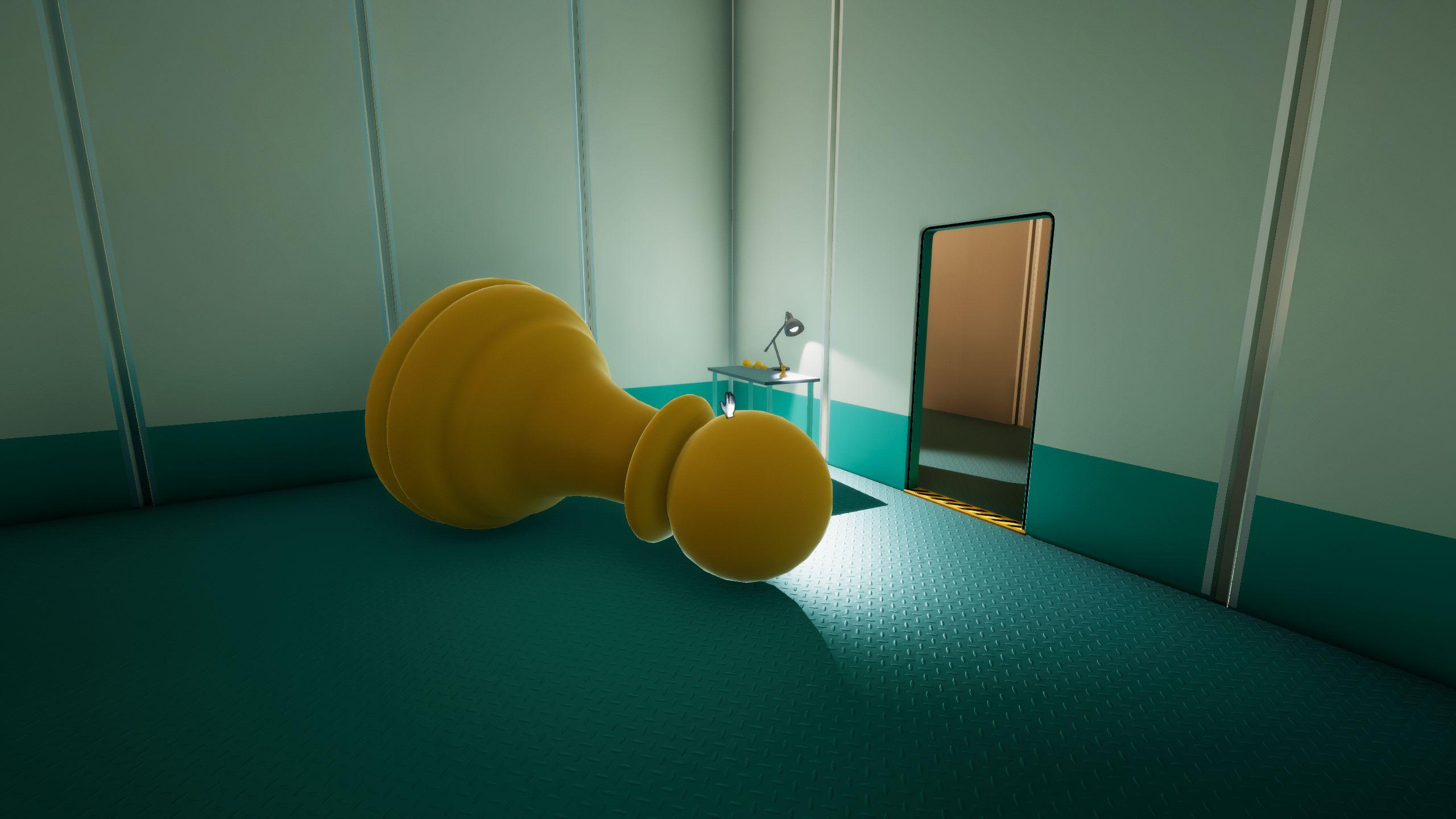
Apr
Superliminal – Review
In Superliminal, we manipulate objects with dream logic to escape a long dream. Can’t wake up (wake me up inside)? Here’s what we think.
Superliminal is a game built around the fact that he human brain is quite easy to fool. Imagine you’re trudging to the kitchen for a glass of water, and it’s the middle of the night. You’re absolutely convinced that someone with shaggy hair is watching you out of the shadows, but turns out, it’s just a mop you left leaning against the wall. Still, for a few moments, that mop was a demonic serial killer. Now it’s not, and your brain has, in a split second, re-adjusted its entire world around this revelation.

Such moments of readjusting your perspective are all too common in Superliminal. How you look at things is not just a metaphorical question in this game, but a very literal one. Pick up a chess pawn, and depending on your perspective, it can be tiny enough to fit on a wedding ring, or as large and loud as an elephant. The game’s series of levels take you through a breakneck gauntlet of perspective-based puzzles, some of which are complex technical marvels and others are so ingeniously simple that I wondered why I haven’t encountered them before. There’s a wide variety of puzzle mechanics, which are filtered in and out with regularity. Nothing gets old in Superliminal, other than your own visual perception.

There’s probably little recourse to explaining the visual-bending logic of Superliminal, than to stick it into a dream-based plot. You’re sleeping, it would seem, in a special research program that you signed up for. Beyond that, there’s little in the way of a story beyond Portal-esque humour that pokes fun at science, computers, and corporate mores. It’s good humour, though, even if the concept is old hat. Most importantly, it fits the game’s tone of extremely subtly madcap tone. Even if the writing of Superliminal tells some great jokes, it’s the puzzles themselves that really made me laugh.

Nothing is ever as you expect in Superliminal. It pranks your brain, once, twice, and a few dozen times more, building up an expectation and then subverting it without so much as a wink or a quip. This deadpan style does also mean that Superliminal is a mostly flat experience, barely registering emotions other than curiosity and epiphany. The game attempts to salvage this at some point, but it’s too little, too late.

By the time the game ended in some 2-3 hours of play, I felt that I had experienced a terrific, meaty proof-of-concept. As such, it’s entirely dependent on how much you’re interested in solving clever puzzles that encourage out-of-the-box thinking and explorative experimentation. Pillow Castle has made a compelling debut in a game that, for all of my intents and purposes, is sheer wizardry. Not only does the game trick your brain over and over, but it requires you to trick your brain to solve its puzzles. It’s great. Dunk on your brain. It’s silly anyway.

Superliminal is a little more clinical and flat than it deserved to be, but it’s still a spectacular, perception-bending experience that everyone needs to try. It sparks joy, and that’s a lot in itself.
Developer: Pillow Castle
Country of Origin: United States
Publisher: Pillow Castle
Release Date: 12th November 2019 (PC)
This review is based on a copy of the game provided by the developer. The PC version of the game was played for this review of Superliminal.
Thank you for reading this review of Superliminal! For other interesting articles on Into Indie Games, check out the links below:
- Into Indie Games Homepage
- Indie Dev Interview: Super8bitRafa – The Dead of the Night
- Why are indie games better than AAA?
- A Memoir Blue Walkthrough
- Truberbrook – Review
- Review: The FIFINE Ampligame H6 USB Gaming RGB Headset for under $50
WHAT DID Into Indie Games THINK?
-
FOUR OUT OF FIVE STARS
Summary
It’s got little going for it other than clever puzzles, but during those puzzles, Superliminal will bend your perception and force you to think so far out of the box, you’ll forget what the box ever looked like.
